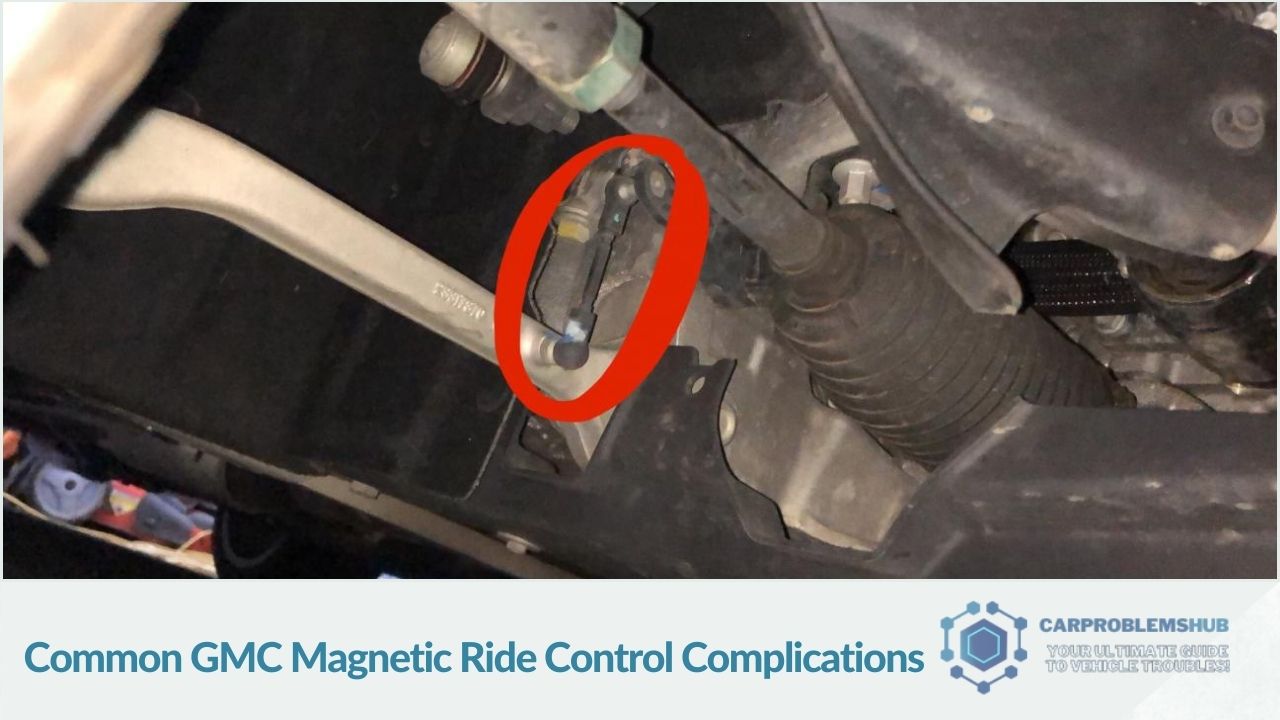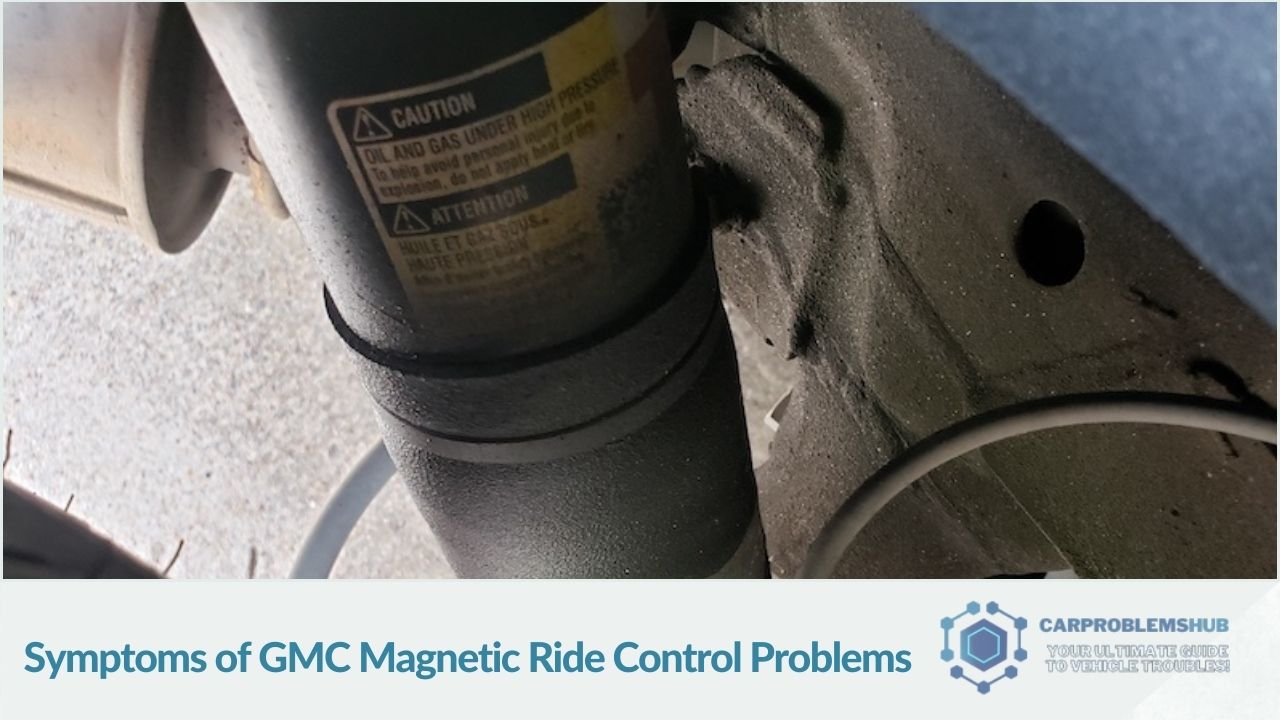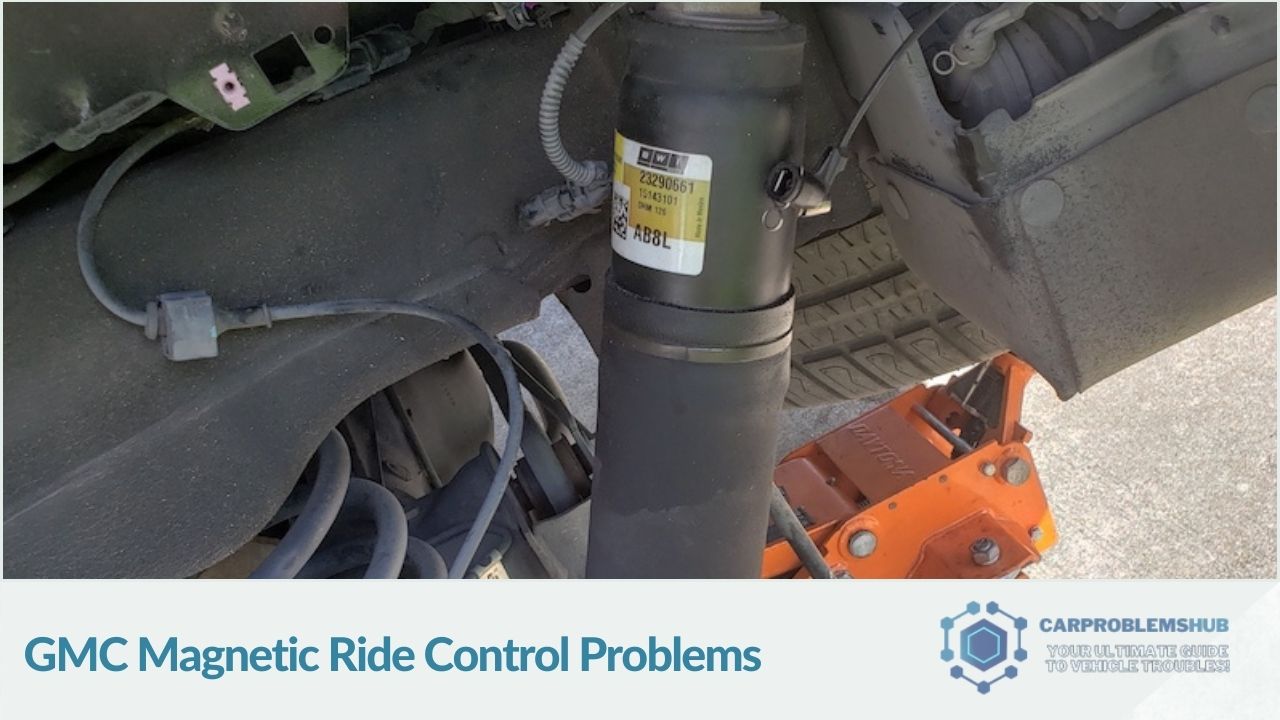The GMC Magnetic Ride Control stands out as a superior suspension mechanism, employing magnetic fluid to modify shock stiffness instantaneously. This ingenious design ensures the vehicle glides smoothly on uneven terrains while maintaining top-notch handling and steadiness.
🚨You may be interested in: 2020 GMC Terrain Problems & Maintenance Insights
Yet, no system is infallible. The GMC Magnetic Ride Control, too, has its set of challenges. Highlighted below are some frequently reported gmc magnetic ride control problems:
Common GMC Magnetic Ride Control Complications

- Fluid Leaks from Shocks: Predominantly, the magnetic fluid might seep from the shocks over its lifespan, diminishing its adaptive stiffness capabilities.
- Sensor Malfunctions: The system's efficiency relies heavily on several sensors that assess driving conditions. A malfunctioning sensor might disrupt the system's optimal functioning.
- Software Glitches: Governed by a computer, if the Magnetic Ride Control's software becomes obsolete or corrupt, it can jeopardize the system's operation.
Symptoms of GMC Magnetic Ride Control Problems

When the GMC Magnetic Ride Control starts faltering, certain signs manifest, such as:
- Uneven Ride Quality: A noticeably bumpy ride can imply potential shock-related issues.
- Compromised Handling: A lack of vehicle stability might indicate troubles with the shocks or the sensors.
- Dashboard Error Alerts: Any error prompts on the dashboard can hint at complications with the Magnetic Ride Control mechanism.
🚨You may be interested in: 2016 Jeep Patriot Problems: An Exhaustive Analysis
Rectifying GMC Magnetic Ride Control Challenges
The optimal solution for any gmc magnetic ride control problems is consulting a proficient mechanic. Depending on the diagnosis, solutions range from a simple shock replacement to overhauling the entire system if sensor or software issues arise.
GMC Magnetic Ride Control Troubles
To stave off potential gmc magnetic ride control problems:
- Adhere to Service Schedules: Regularly servicing your GMC as per the owner's manual recommendations is paramount.
- Steer Clear of Rough Terrains: Excessive exposure to uneven roads can strain the Magnetic Ride Control system.
- Maintain Vehicle Cleanliness: Accumulated dirt on the system's sensors can trigger malfunctions.
💥See also: The 8 Common 2007 Mercedes S550 Problems and Costs
Final Thoughts
Undoubtedly, the GMC Magnetic Ride Control revolutionizes suspension systems, offering unparalleled comfort. Yet, vigilance about potential hitches ensures the vehicle's longevity and optimal performance.
A Personal Anecdote
For half a decade, the proud owner of a 2015 GMC model equipped with Magnetic Ride Control has largely been content with its performance. Yet, a leaking shock incident did arise once. Fortunately, prompt, professional intervention resolved the issue, which hasn't recurred. Such advanced features undeniably elevate a vehicle's worth, but awareness and preventive actions are equally crucial.


Similar Problems in Other Models
DTC C0561-71 Vacuum Sensor Code on GM, GMC and Chevy
Chevy Shake and GMC Vibration Recall
2018 GMC Canyon Problems (9 Common Issue)
2020 GMC Terrain Problems and Maintenance Insights
GMC 3.0 Diesel Problems, Causes and Solutions
GMC MultiPro Tailgate Problems and Solutions
GMC Infotainment System Problems, Causes and Solutions
2014 GMC Terrain Problems: Delving into Costs and Concerns
GMC Terrain Diesel Problems and Solutions
GMC Body Control Module Problems and Solutions